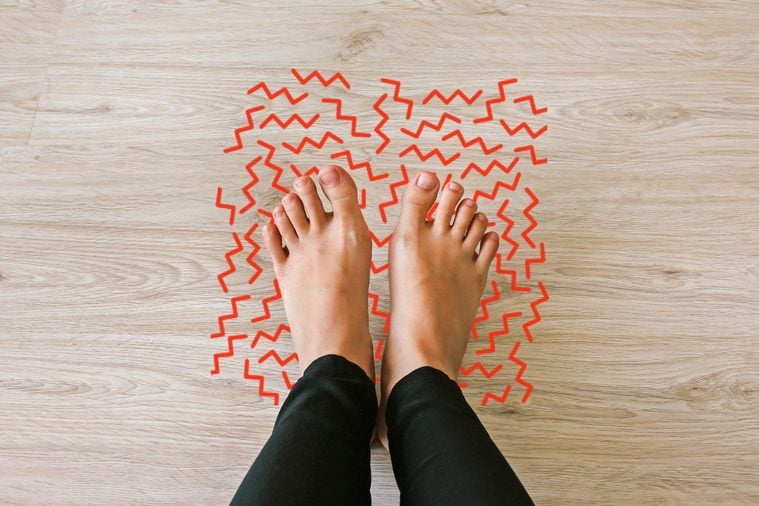Paresthesia: This Is What Happens When Your Foot Falls Asleep
Updated: Feb. 22, 2021
Does your foot always fall asleep? Here's what you need to know about why we experience paresthesia—and when you should be worried.
 That all-too-familiar numbing sensation when your foot falls asleep has a scientific name: paresthesia. Sometimes, it takes time before you can effectively “wake” your foot, which makes us wonder why feet fall asleep in the first place.
That all-too-familiar numbing sensation when your foot falls asleep has a scientific name: paresthesia. Sometimes, it takes time before you can effectively “wake” your foot, which makes us wonder why feet fall asleep in the first place.
According to the National Institute of Neurological Disorders and Stroke, paresthesia is that “pins and needles” feeling that occurs when there is sustained pressure on a nerve. Dr. Susan Besser, M.D., a family medicine specialist with Mercy Personal Physicians at Overlea in Maryland, says the nerve functions improperly under this pressure. “Hitting your ‘funny bone‘ is the same process, although in that case, the compression is sudden and brief, so the symptoms don’t last as long,” she says. Then find out the scientific reason you get “dead arm” while you sleep.
Bending your arms on long car rides or crossing your legs are common causes of nerve compression resulting in sleeping hands and feet. That said, a popular misconception is that a lack of blood flow is the problem. According to Dr. Besser, it has nothing to do with blood flow—only nerves. “There are multiple blood vessels in the leg, […] for circulation, so it’s harder to cause blood flow blockage with a normal vascular system,” she says. “With nerves, however, there is only one per area, so it’s easier to cause the obstruction.” The good news is that there are home remedies for restless leg syndrome worth trying.
There are also all different types of paresthesia, associated with various other health issues such as diabetes, multiple sclerosis, and stroke. Any nerve damage from an injury or surgery could cause it too, Dr. Besser says.
The only time you have to worry is when your symptoms are consistent, recurring, and last for more than a few minutes. That’s when it’s time to speak to your doctor. Otherwise, Dr. Besser says no long-lasting damage could happen from brief paresthesia. And as for waking the leg up, there is no right or wrong way to do so—it’ll happen on its own after you release the compression on the nerve. That said, your feet can also provide an early indication of more serious health concerns. Don’t miss the signs of disease that your feet can reveal.
[Source: Women’s Health Magazine]
